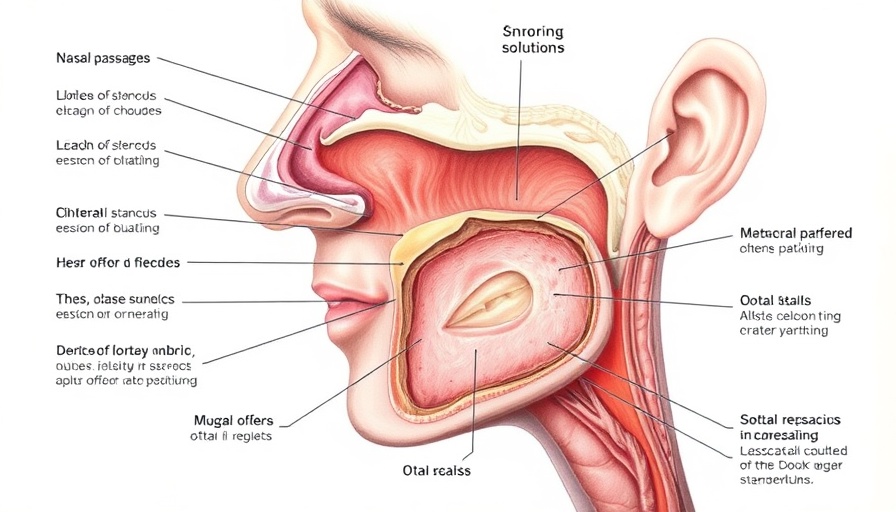
Trust the Process: A Parent's Guide to Navigating Youth Substance Abuse
As parents, we often feel an innate desire to safeguard our children from harm and guide them toward healthy lifestyles. But what happens when the path becomes laden with the potential dangers of substance abuse? Understanding the process of recovery—whether your child is grappling with addiction or a friend or family member is—can be transformative. This article seeks to illuminate the ways you can trust in the recovery process and support your loved ones.
The Journey of Recovery: What it Looks Like
Recovery from addiction is rarely linear. It more closely resembles a winding road, filled with moments of growth, challenge, and occasional setbacks. As you navigate this journey with your child or loved one, it’s crucial to recognize the various stages of recovery that include detoxification, rehabilitation, and ongoing therapy. Many rehabilitation facilities, such as inpatient and outpatient rehab centers in Johannesburg and Cape Town, offer tailored programs that support recovery through evidence-based treatments, counseling, and holistic therapies.
Understanding Substance Abuse Recovery
Substance abuse recovery often begins with an addiction assessment by professionals. In South Africa, rehab programs provide essential services like dual diagnosis treatment for co-occurring disorders, allowing for a comprehensive approach to mental health treatment and addiction.
For many young people, the first step is detoxification. For serious dependencies, inpatient rehab may be necessary, while others might benefit from outpatient therapies that allow them to retain some levels of regular life while addressing their addiction. Concepts such as motivation interviewing and cognitive behavioral therapy have emerged as effective techniques to help young individuals understand their triggers and develop healthier coping mechanisms.
Family Roles in the Recovery Process
As a parent, your role is vital. Engaging in family counseling and learning about aftercare programs can enhance your child’s chances of success. Recovery isn’t about blaming or shaming; it’s about understanding and healing as a family unit. Supporting your loved one can look like being actively involved in group therapy sessions or attending Narcotics Anonymous meetings together. Such approaches provide not only guidance but also a sense of community that is often key to long-term recovery.
Tools for Empowering Recovery
Incorporating mindfulness-based therapies, such as yoga or meditation, into the recovery process can effectively reduce anxiety and encourage a more balanced mental state. As a family unit, consider engaging in activities that promote physical and emotional well-being; exercise programs can build strength while fostering resilience to stressors.
Your family can also explore creative therapies like art and equine-assisted therapy to offer new pathways for expression. These types of interventions can help young individuals work through their emotions in a supportive environment.
Addressing Common Misconceptions
It’s important to steer clear of common misconceptions that may hinder the recovery process. For example, believing that addiction is simply a lack of willpower can prevent parents and loved ones from fully engaging in their child's recovery journey. Acknowledge that substance abuse is a complex challenge caused by a multitude of factors, including mental health issues, environmental influences, and genetic predispositions.
The Importance of Aftercare and Continued Support
Even after successfully completing a rehab program, the recovery process continues. Encouraging participation in aftercare programs helps mitigate the risk of relapse. These programs provide ongoing support through sober living houses, therapy, and community support groups, which can significantly improve your loved one's odds of maintaining sobriety.
Final Thoughts: Strengthening Family Ties
Ultimately, recovery from substance abuse presents an opportunity for families to come together and foster deeper connections. As you trust the process, remember that maintaining open communication and providing unconditional support is key. By understanding the journey and remaining actively involved, you can help guide your child toward a brighter, healthier future.
As we undergo this transformative journey, let’s focus on empowering our loved ones to make informed choices about recovery. If you or someone in your family is currently facing challenges with substance abuse, consider reaching out to local facilities for assistance; understanding your options can be the first step in a successful journey.
 Add Row
Add Row  Add
Add 




Write A Comment